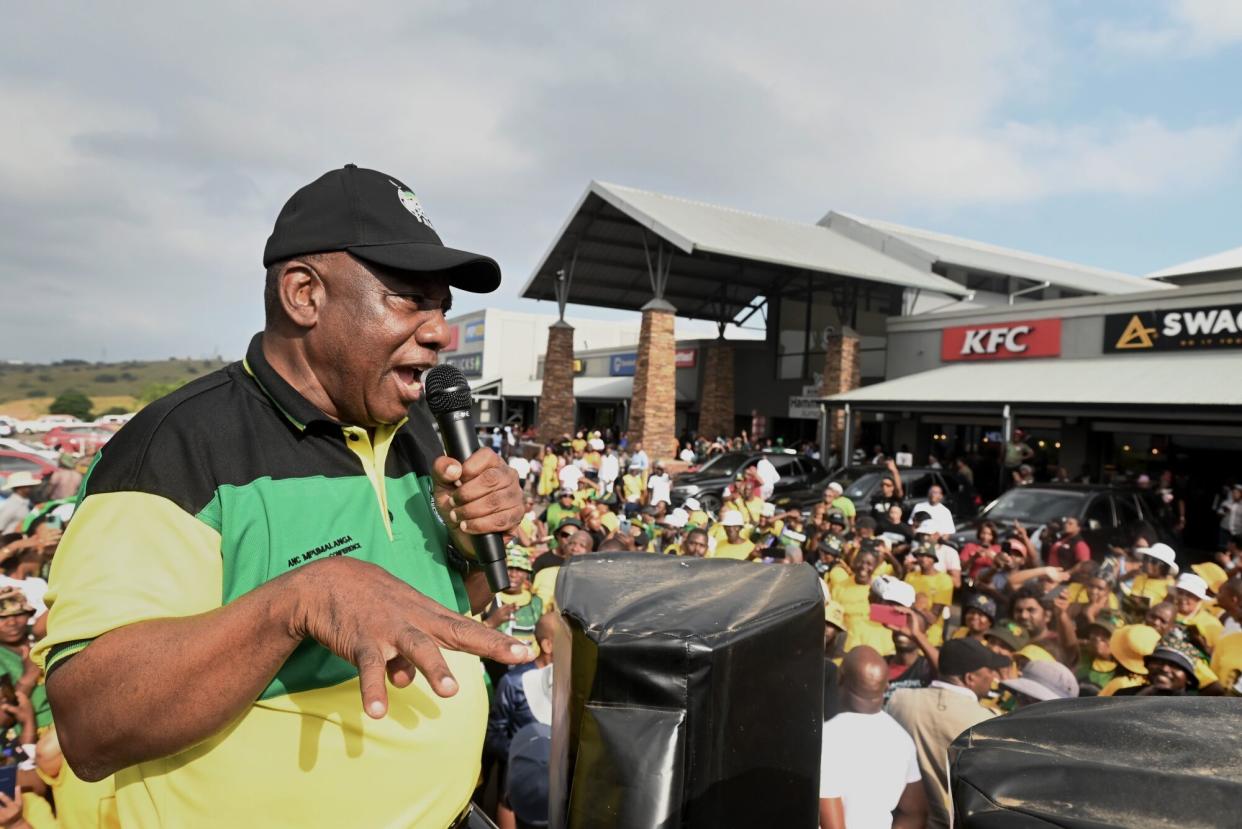Ramaphosa Vows to End ‘Health-Care Apartheid’ With Prickly Law

(Bloomberg) -- South Africa’s president and head of the ruling African National Congress, Cyril Ramaphosa pledged to end “health-care apartheid” with a controversial bill that awaits his sign-off.
Most Read from Bloomberg
Trump Has Only $6.8 Million for Legal Fees With Trial Underway
Billionaire Pinaults Fight to Pull Gucci Off the Discount Rack
Apple’s China iPhone Sales Dive 19% in Worst Quarter Since 2020
“Now we are going to introduce the National Health Insurance Bill where we are going to equalize health care in our country,” he said. “We are going to end the apartheid that remains in health care where you have the best health care for the rich and poor health care for the poor.”
Parliament’s National Council of Provinces approved the bill in December and referred it to the president, who can either assent to it or ask lawmakers to amend it if it’s deemed to be legally or technically flawed. The legislation provides a framework for the provision of universal care through a state-run fund and will ban the private sector from financing treatment covered under the plan.
While signaling that he plans to sign it, Ramaphosa — addressing an election rally in the highly contested eastern KwaZulu-Natal province over the weekend — didn’t provide a time frame for when he would enact the legislation. The country goes to the polls on May 29.
Read More: Why South African Health-Care Revamp Stirs Opposition: QuickTake
While there is a widespread support for reform of a system that sees a multibillion rand private health-care industry servicing 16% of the population and the balance relying on overburdened public facilities, critics of the NHI bill argue that the government’s proposals haven’t been properly costed, are unconstitutional and could be successfully challenged in court.
The ANC is facing its toughest election yet, with opinion polls showing the party may lose its majority for the first time since coming to power in 1994 because of stagnant economic growth, rampant unemployment and poverty. It’s also having to deal with a challenge by its former president, Jacob Zuma, who is popular in KwaZulu-Natal, the second-most populous province, and is competing in the elections for the newly formed uMkhonto weSizwe Party.
Reinstall the ANC
Ramaphosa, surrounded by crowds wearing party regalia, urged supporters to “reinstall” the ANC with “an outright victory” in the election because coalition governments formed in South African metropolitan areas have proven to be “dysfunctional.”
The ANC is preparing for a clean slate to implement its policies over the next five years, after Ramaphosa’s first term was spent righting the wrongs of Zuma’s administration, he said.
Bloomberg Terminal clients can click on ELEC ZA for more on South Africa’s elections
Zuma led South Africa for nine years marred by scandal, including allegations of large-scale corruption and the looting of billions of dollars of government funds — a phenomenon known locally as state capture. He’s denied wrongdoing and hasn’t been indicted on the accusations.
“The past five years have been the five years of rebuilding, of repositioning South Africa, of dealing with the problems that we experienced in the nine years prior, state capture, the weakening of state institutions, the weakening of the public service and corruption,” Ramaphosa said.
Most Read from Bloomberg Businessweek
How a Massive Hack of Psychotherapy Records Revealed a Nation’s Secrets
A Hedge Fund Billionaire’s Cash Helped Fund a ‘Predatory’ Lender
What Really Happens When You Trade In an iPhone at the Apple Store
Rents Are the Fed’s ‘Biggest Stumbling Block’ in Taming US Inflation
©2024 Bloomberg L.P.



